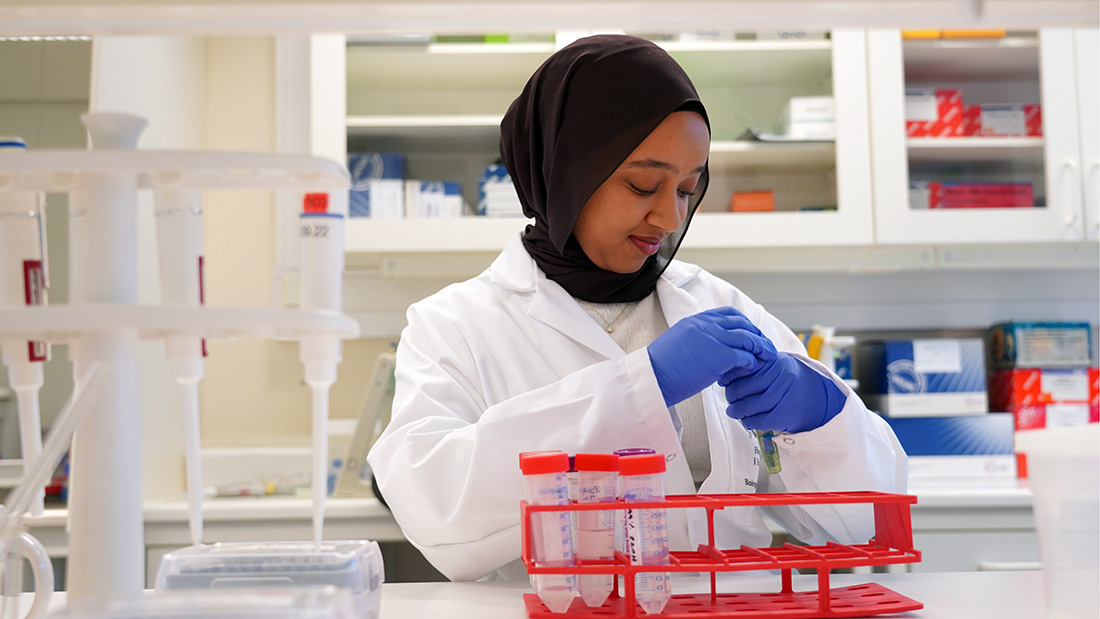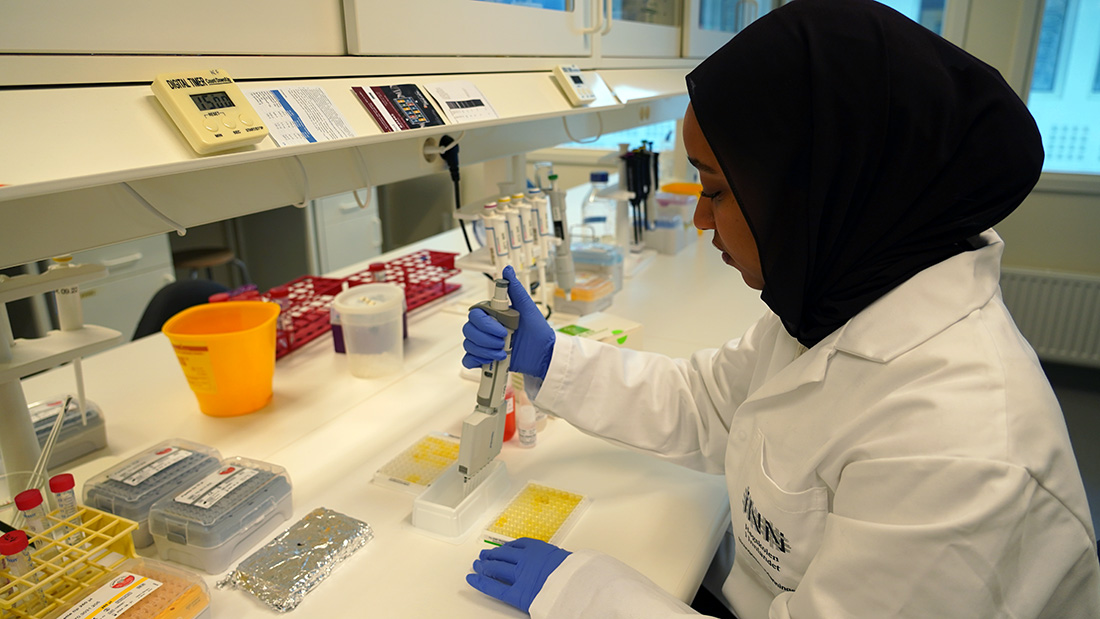In a few months, she will have completed her master’s degree in commercial biotechnology. Nesreen is a trained biomedical laboratory scientist and after one year in working life, she moved from Lier to study in Hamar. Now the study programme has been revised and the name has been changed to master’s in applied biotechnology and biomedical sciences.
– A fantastic opportunity
In order to facilitate students like Nesreen with a bachelor’s degree in biomedical laboratory science, it will be possible from autumn 2024 to replace two subjects from the study plan with alternative subjects in laboratory medicine. Aman describes this as a fantastic opportunity for trained biomedical laboratory scientists.
– I think far more biomedical laboratory scientists will apply for the programme. The changes make it possible to combine subjects from the biomedical laboratory science education and specialise within what they have been educated in, but can also specialise in a more technological direction, which I think will mean a lot to some biomedical laboratory science students, says Aman.

Moved to Hamar to study
Aman is originally from Lier and took a bachelor’s degree in biomedical laboratory science at OsloMet. She spent one year working as a biomedical laboratory scientist to figure out what she wanted to specialise in before applying for a master’s programme. Although she did not get the opportunity to replace two subjects from the study plan like the new students will from the autumn on, she is very satisfied with her choice of master’s programme.
– It has been nice, challenging, and educational for me. Especially bioinformatics has been a bit demanding at times, but at the same time very useful. I think the revision of the programme is positive. If I only had a bachelor’s in biomedical laboratory science now and had the opportunity, I would have started the master’s programme in the autumn as the study now gets two elective subjects, says Aman.
Aman started the master’s in commercial biotechnology in autumn 2022. Initially, the plan was to work a few more years before she starts studying again, but she says herself that she was so eager when she got into the programme, that she took advantage of the opportunity immediately.
– I worked for one year as a biomedical laboratory scientist and became more interested in the technological aspect of medical research, especially in diagnostics and analysis principles in healthcare.
Chose a slightly smaller place to study
She chose Hamar as a place of study because she thought that she would get closer to the academic environment and the professors here than in the big cities. In addition, it was important for her that the study is industry-oriented, where subjects like bio-economy and bio-business are especially valuable.
In Hamar, there is also a need for biomedical laboratory scientists, so she could work a bit alongside her studies at the Hamar hospital.
– It is easy to get a job as a biomedical laboratory scientist in Innlandet. I feel that there is a need for me and my skills. At the same time, I am primarily a full-time master’s student, but work as a substitute when I have the capacity, says Aman.

Master’s project aimed at trauma
She is now in her last semester as a master’s student at the Inland Norway University of Applied Sciences (INN) and in the final stages of her master's project, which is aimed at laboratory medicine, a field many of the future biomedical laboratory science students in the programme will probably also specialise in.
The project, which is a collaboration between INN and the Innlandet hospital, focuses on the biological aspect of trauma. Aman has looked at biomarkers in adult inpatients who have experienced psychological trauma and, in some cases, have developed PTSD and depression. Biomarkers are substances or molecules that can be measured or detected in a body or cell, and which tell something about an underlying condition.
In the project, Aman has looked for changes and compared the results from these patients with adult blood donors. In addition, one of the aims of the project is to investigate associations between the biomarkers and type 2 diabetes.
– It is a little too early to say anything about the results, but research indicates that the biomarkers I have chosen to investigate, i.e. Brain-derived neurotrophic factor (BDNF), leptin and adiponectin can reveal and predict disease. Several studies also suggest that patients with trauma disorders may have altered levels of these analytes in the body, and this could potentially affect their metabolism, says Aman.
The goal is to complete the master's project during the spring. Aman does not rule out that she will build on her master's project or work in trauma research in the future.
– I have several options in the future. It may be relevant to work in research and diagnostics or take further studies in the form of a doctorate. INN offers, among other things, a Ph.d. in applied ecology and biotechnology, which may be relevant, says Aman.



